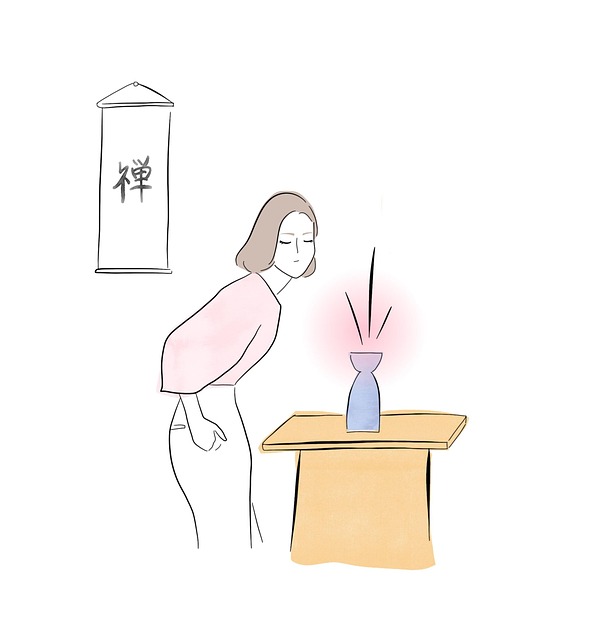Westminster Suicide Prevention Therapy (WSPT) offers specialized mental wellness group facilitation, creating safe spaces for individuals to share and grow. Through open dialogue, self-reflection, and community building, facilitators guide members to develop coping mechanisms and enhance emotional intelligence. WSPT's holistic approach incorporates cultural competency, risk management, and burnout prevention strategies, empowering healthcare providers to support diverse populations at risk while improving their own well-being. Effective group facilitation techniques focus on active listening, empathy, and guided discussions, fostering trust and validating experiences, ultimately contributing to stronger mental resilience and community connection.
Mental wellness group facilitation plays a pivotal role in fostering community and support, especially through approaches like Westminster Suicide Prevention Therapy. This article delves into the art of facilitating such groups, exploring key techniques for creating safe spaces. We’ll examine strategies from Westminster’s therapeutic framework to enhance engagement and encourage open dialogue. By understanding these methods, facilitators can build supportive environments, ultimately improving mental health outcomes within group settings.
- Understanding Mental Wellness Group Facilitation
- Westminster Suicide Prevention Therapy: An Overview
- Effective Techniques for Group Sessions
- Creating a Safe and Supportive Environment
Understanding Mental Wellness Group Facilitation

Mental wellness group facilitation is a specialized skill that goes beyond mere conversation. It involves creating a safe, supportive environment where individuals can share their experiences, gain insights from peers, and develop coping mechanisms. Facilitators play a crucial role in guiding these groups, ensuring every member feels heard and valued. By fostering open dialogue, they encourage self-reflection and build a sense of community, which are essential components for enhancing mental well-being.
In the context of Westminster Suicide Prevention Therapy, understanding group facilitation is key to preventing burnout among healthcare providers while boosting their confidence in managing at-risk individuals. Self-awareness exercises and burnout prevention strategies can be seamlessly integrated into these groups, allowing participants to explore their emotions, strengthen resilience, and connect on a deeper level. This holistic approach not only benefits the mental health of facilitators but also equips them with powerful tools to support others in their journey towards healing.
Westminster Suicide Prevention Therapy: An Overview

Westminster Suicide Prevention Therapy (WSPT) is a comprehensive program designed to equip mental health professionals with the necessary tools and skills to effectively prevent suicide. This therapeutic approach goes beyond traditional counseling by emphasizing a holistic understanding of an individual’s psychological, social, and cultural factors contributing to suicidal ideation. WSPT involves training healthcare providers in cultural competency, ensuring they can address the unique needs of diverse populations at risk.
The program includes strategies for risk management planning, enabling professionals to identify and mitigate potential triggers. By fostering a sense of hope and connecting individuals with supportive networks, WSPT aims to boost clients’ confidence and resilience. This tailored therapy approach ensures that mental health professionals are well-prepared to navigate the complexities of suicide prevention, ultimately saving lives and promoting better mental wellness outcomes.
Effective Techniques for Group Sessions

Effective group facilitation techniques are crucial for creating a safe and supportive environment in mental wellness sessions, fostering open communication and enhancing emotional intelligence among participants. Facilitators can utilise various strategies to ensure engaging and productive meetings. One powerful approach is incorporating structured activities that encourage self-reflection and peer support. For instance, starting with an icebreaker helps members get to know one another, fostering a sense of community and reducing social barriers.
Additionally, techniques like active listening and empathetic reflection promote emotional regulation and validate individual experiences. Facilitators can guide discussions on coping mechanisms, stress management, and self-care routine development for better mental health. By integrating these practices, group sessions at Westminster Suicide Prevention Therapy become dynamic spaces where participants learn from one another, build resilience, and cultivate a deeper understanding of emotional intelligence, ultimately contributing to their overall well-being.
Creating a Safe and Supportive Environment

Creating a safe and supportive environment is a cornerstone in mental wellness group facilitation. This involves fostering an atmosphere where every participant feels seen, heard, and respected. Techniques like active listening, open-ended questions, and non-judgmental responses help build trust among members. By encouraging genuine interactions and creating opportunities for sharing without fear of criticism, facilitators can ensure that individuals feel secure to explore their mental health challenges openly. This approach aligns with the principles of Westminster Suicide Prevention Therapy, emphasizing connection and support as foundational elements in preventing burnout and promoting self-care—crucial aspects of Burnout Prevention Strategies for Healthcare Providers.
Furthermore, a supportive environment enhances Mental Health Awareness by normalizing conversations around mental wellness. Facilitators can model healthy coping mechanisms and encourage peer support, fostering a sense of community that encourages individuals to develop Self-Care Routine Development for Better Mental Health. This holistic approach not only improves individual well-being but also strengthens the collective’s resilience in navigating life’s challenges.
Mental wellness group facilitation plays a pivotal role in fostering resilience and recovery. Techniques like those explored, including Westminster Suicide Prevention Therapy, offer structured yet flexible frameworks to create safe spaces where individuals can connect, share experiences, and learn from one another. By prioritizing a supportive environment, facilitators enable members to develop coping strategies, build social connections, and ultimately enhance their overall mental wellness. These group sessions prove to be powerful tools in preventing suicide and promoting well-being in communities worldwide.











